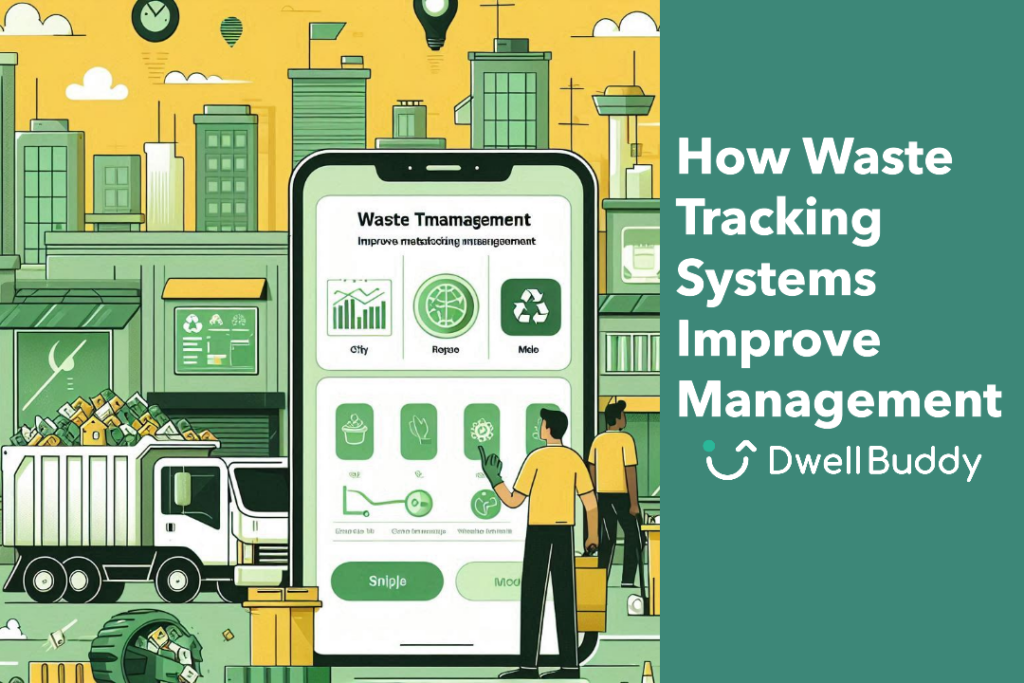
Introduction
In today’s world, effective waste management is more critical than ever. The focus on sustainability and environmental conservation is growing. Waste tracking systems have emerged as crucial tools for improving waste management. These systems help organizations track and manage their waste well. They also help to reduce their environmental footprint. In this blog, we’ll explore how waste-tracking systems improve management. We’ll also cover their benefits and how to install them well.
What are waste tracking systems?
Waste tracking systems are technologies. They design systems to check and manage waste generation, collection, transport, and disposal. These systems can be simple, like logbooks. Sophisticated software solutions are also possible. The software provides real-time data and analytics. By using waste tracking systems, organizations can learn about their waste production patterns. They can find areas to improve and obey environmental regulations.
Key Features of Waste Tracking Systems
- Real-time monitoring: Track waste generation and movement in real-time.
- Data analytics: Analyze waste data to identify trends and opportunities for optimization.
- Compliance tracking: Ensure adherence to local, national, and international waste management regulations.
Reporting: Generate detailed reports on waste management activities.
analyze it to get insights into waste management. They use machine learning and AI to spot patterns. They then predict future waste.
Reporting and Compliance
Waste tracking systems generate reports that help organizations understand their waste management performance. You can use these reports to show compliance with environmental rules. They also help you decide how to cut waste.
Benefits of Waste Tracking Systems
Improved Efficiency
Waste tracking systems provide real-time data and insights. They help organizations streamline their waste management. This can lead to cost savings and more efficient use of resources.
Environmental Impact
Accurate waste tracking minimizes environmental damage. This harm comes from making and throwing it away. By finding ways to improve, organizations can cut waste. They can also help meet sustainability goals.
Regulatory Compliance
Waste tracking systems ensure that organizations follow waste management regulations. This not only helps avoid fines and penalties. It also boosts the organization’s reputation as a responsible entity.
Cost Savings
Reducing waste and improving efficiency can lead to significant cost savings. Waste tracking systems help find inefficiencies. They also prove ways to reduce costs. This makes waste management cheaper.
Implementing waste tracking systems.
Step-by-Step Guide
- Assess Needs: Determine the specific waste tracking needs of your organization.
- Choose a System: Select a waste tracking system that meets your requirements.
- Install: Install and configure the system, ensuring it integrates with existing processes.
- Train employees in system operation to optimize their skills.
- Analyze system performance in precise detail. Put in place required configuration refinements afterwards.
Tips for Successful Implementation
- Start Small: Begin with a pilot project to test the system and identify any issues it’s got.
- Involve all relevant stakeholders in the process. This will ensure they buy in and support it.
- Set clear goals. Define clear goals for the waste tracking system to measure its success.
Future Trends in Waste Tracking
IoT Integration
The IoT will integrate with waste tracking systems. Experts expect this to revolutionize waste management. Sensors with IoT can give real-time data on waste levels. This data enables better collection and disposal.
Artificial Intelligence
Artificial intelligence (AI) is set to play a significant role in waste tracking. AI algorithms can analyze garbage data. They use it to predict future trends and improve its garbage processes.
Blockchain Technology
Blockchain technology can enhance transparency and traceability in waste tracking systems. Blockchain provides a secure record of waste management. It can prevent fraud and ensure compliance with rules.
FAQs
1.What is a waste tracking system?
A waste tracking system is a tool. It’s used to watch and manage waste generation, collection, transport, and disposal. It provides live data and analytics. They help groups improve their waste processes.
2.How do waste tracking systems improve efficiency?
Waste tracking systems improve efficiency. They do this by providing real-time data and insights into waste management. This helps organizations identify inefficiencies and optimize their processes.
3.Are waste tracking systems expensive to implement?
The cost of a waste tracking system can vary. It depends on its complexity and features. However, the long-term cost savings and environmental benefits often outweigh the initial investment.
4.Can waste tracking systems help with regulatory compliance?
Yes, waste tracking systems help ensure compliance. They do so with local, national, and international waste management rules. They provide detailed reports that demonstrate adherence to these regulations.
5.What are the future trends in waste tracking?
Future trends in waste tracking will include IoT. They will also use artificial intelligence and adopt blockchain. These advancements are expected to improve waste management. They will make it more efficient, clear, and traceable.
Conclusion
Waste tracking systems are invaluable tools for improving waste management processes. These systems provide real-time data. They also give insights and analytics. They help organizations cut waste, boost efficiency, and follow regulations. Technology is evolving. Waste tracking systems will play a bigger role. They will help achieve sustainability goals and reduce environmental impact. To improve waste management, you need a waste tracking system.


1 Comment
Comments are closed.